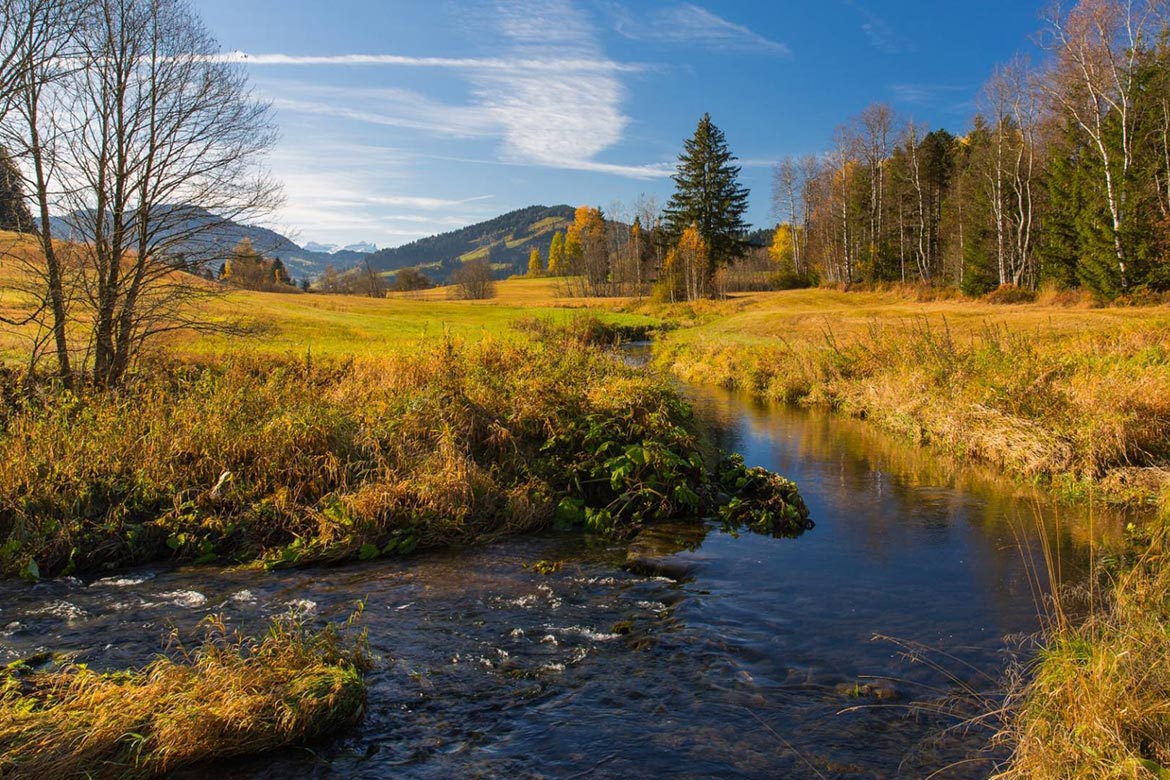BIODIVERSITY
The Earth is losing valuable wetlands
A global map of wetlands shows where human activity has destroyed them, and where protective measures could still have an impact.

The River Biber here flows through the protected moorlands of Biberbrugg-Rothenthurm. | Image: Lukas Bammatter / WWF
Wetlands are home to immense biodiversity. They reduce the risk of flooding, and store carbon. And yet, despite their importance, humanity has over the past 300 years destroyed wetlands all over the globe with a total surface area equal to that of India. This is the conclusion reached by an international research team including scientists from Switzerland.
They gathered together thousands of local datasets, combining national statistics with regional records and model maps of wetlands in order to extrapolate the historical extent of the wetlands that have been lost all over the world. “Collating and harmonising all these individual datasets was an extremely time-consuming task”, says Benjamin Stocker from the University of Bern. “But now we have an unprecedented, overall, data-based picture”.
Although a fifth of all wetlands have disappeared, their study also revealed that there are still large areas that can be protected. “Our results therefore also offer an opportunity”, says Stocker. The spatial information provided by the datasets provides documentary evidence of where especially large wetlands are still intact. These are located primarily in the north – in Canada and Siberia – and in tropical rainforests, e.g., the Congo or the Amazon.
However, no single global solution exists that could protect or restore our wetlands. This is because these biotopes have been destroyed for different purposes, depending on where they have been located across the globe. In large parts of Asia, for example, marshlands have been used for rice cultivation, whereas in Northern Europe they have fallen victim to forestry. In Russia, Ireland and Finland, several thousand hectares of moorlands have disappeared due to peat extraction.
In parts of Europe and Asia, up to 90 percent of all wetlands have been lost. So it is all the more important, says Stocker, to protect the remaining ones. Humanity still needs to be able to count on their important role in climate protection, biodiversity and water regulation.




